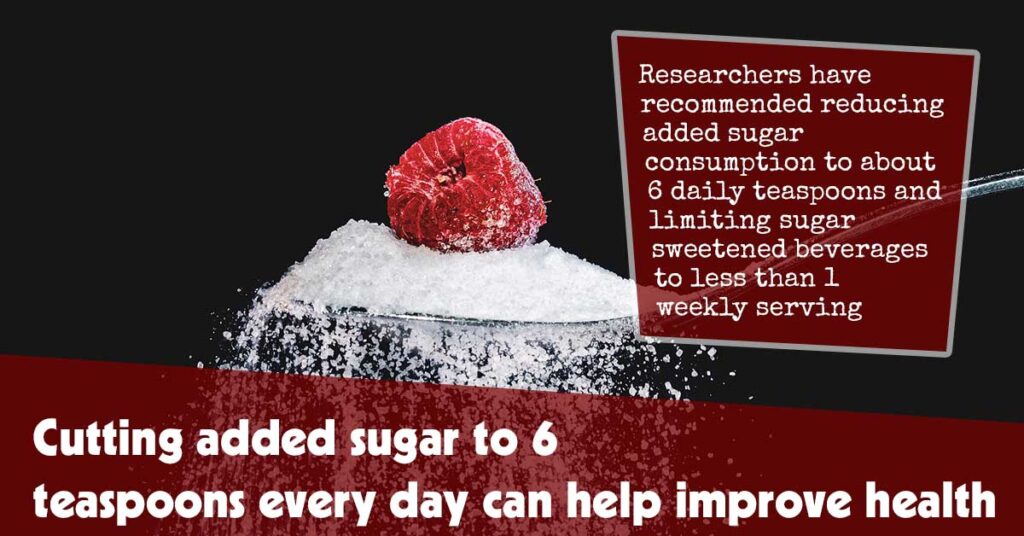Reducing Added Sugar to 6 Teaspoons Daily for Improved Health
Researchers conducted an exhaustive evaluation of evidence, and after consulting it have recommended limiting added sugar consumption to approximately 6 teaspoons daily and restricting sugar-sweetened beverages to less than one weekly serving.
Researchers identified significant links between consumption of sugar and 45 health outcomes, such as depression, some cancers, obesity, diabetes, asthma, heart disease and death.
Consuming too much sugar is well-known to have negative health implications and this has led the WHO and other health organizations to recommend that added sugar intake be limited to less than 10% of total daily energy intake.
Researchers conducted a systematic review to assess evidence quality, potential biases and validity across all available studies related to diet sugar consumption and health outcomes.
This review comprised 77 meta-analyses of observational studies and 6 meta-analyses of randomized controlled studies covering 83 health outcomes.
Quality was assessed and graded accordingly for each outcome: Very Low quality evidence was evaluated as very poor evidence quality while Low, Moderate or High evidence quality could also be graded accordingly.
There were significant harmful relationships found between diet sugar intake and 18 metabolic or endocrine outcomes – such as obesity, gout, diabetes; 10 cardiovascular outcomes such as stroke, heart attack and hypertension; 7 cancer outcomes such as pancreatic, prostate, breast cancer; depression tooth decay asthma death as well as 10 other outcomes such as tooth decay asthma death and death.
Evidence of moderate quality suggested that consumption of sugar-sweetened beverages was significantly correlated with greater body weight for those consuming the highest versus lowest intake, and any added sugar intake led to greater muscle and liver fat accumulation.
Evidence of moderate quality suggested that drinking sugar-sweetened beverages was associated with an increase in gout risk by 4 percent; and each weekly serving increment of sugar-sweetened beverages led to 17% and 4% increases in coronary heart disease risk and death risk, respectively.
Evidence of inferior quality indicated that each 25 gram/day increment in fructose consumption was linked with an increase in pancreatic cancer risk of 22%.
Researchers found no association between dietary sugar consumption and any beneficial health outcomes, other than cardiovascular disease mortality, type 2 diabetes, total cholesterol, brain tumors or glioma mortality; they caution that any positive correlations are not supported by strong evidence.
These results demonstrate multiple health advantages associated with limiting sugar consumption to under 25 grams a day (approximately six teaspoons daily) and sugar-sweetened beverage consumption to no more than one weekly serving (200-355mL per week).

